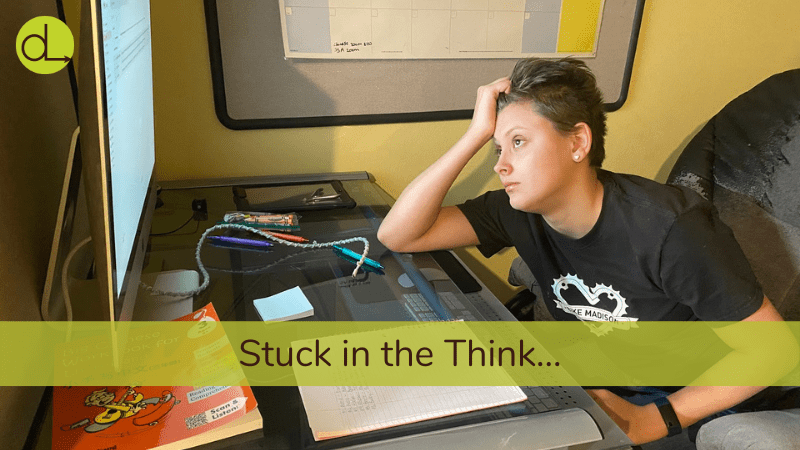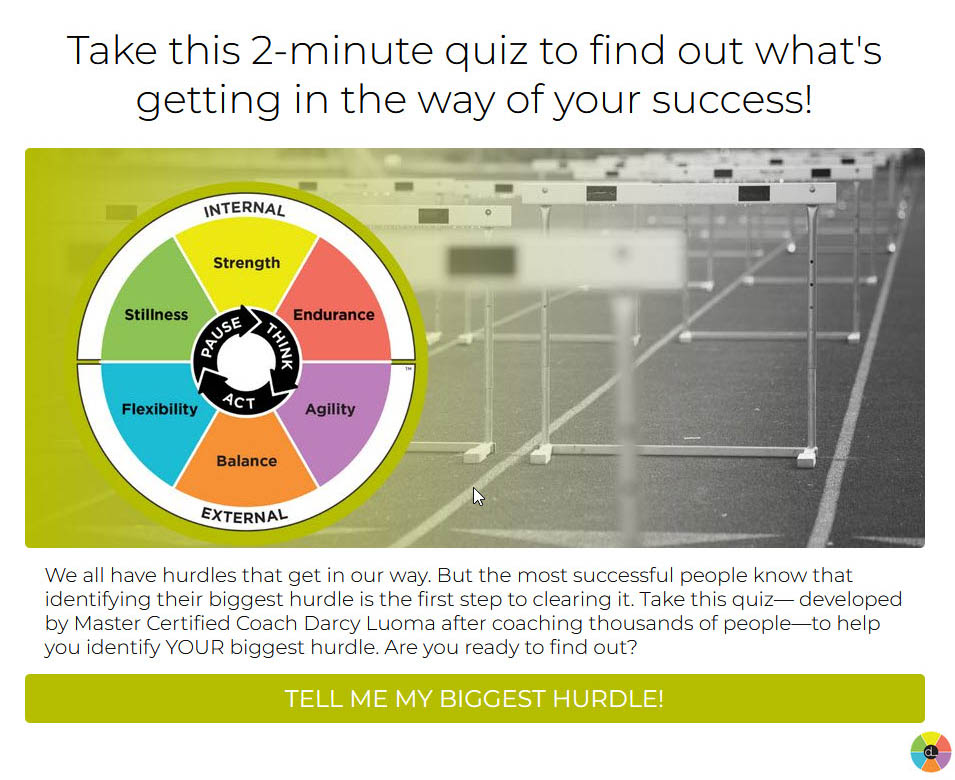My daughter, Josie, recently had to choose her classes for her sophomore year of high school. Up until this point, she’s only been able to choose electives. She now has a ton of decisions.
Applied Chemistry or Physical Science?
Africa Area Studies or Latin America Area Studies? Or AP World Studies?
English 2 or AP English?
Does she want to take AP classes as a sophomore? If so, how many? Or should she schedule a study hall so she can participate fully in sports—without the fear of late nights studying?
But she told me she can’t only think about sophomore year classes, because the classes she takes next year will set her up for the classes she can take later on in high school. And those classes will determine what colleges she can get into. And what college she gets into will determine what she can major in. And what she’ll do for a job. For a career. For life!
Her entire life is dependent on the classes she chooses RIGHT NOW!
As you might imagine, Josie is stuck in analysis paralysis. She’s overwhelmed weighing the pros and cons of each possible decision, that it feels impossible to make any decision.
Alas, analysis paralysis doesn’t only affect teenagers. Adults can spend time thinking about what project to take on next, what to say to that colleague, how to pitch that potential client… really anything. We can spend hours, days, maybe even years, thinking about what we want to do, should do, or could do—without actually doing anything.
If you’re stuck in analysis paralysis, don’t worry. There’s hope.
Don’t Tell Me to Just Decide!
As a mom, I want to take this pressure off Josie. I want to tell her, “Don’t worry. You don’t need to know your major to choose your classes now. Just pick. It’ll be ok.” But I know telling her to just decide isn’t helpful. She would if she could.
When I have clients in analysis paralysis, it’s not helpful to say, “Just make a decision.” They would if they could. Nobody wants to be in the vicious cycle of thinking and rethinking and then thinking again. It can be hard to find that line between being thoughtful and overthinking.
When you’re Thoughtfully Fit, you focus on what you control and explore your choices. The choice when you’re in analysis paralysis is not to just make a decision. You also have the choice to change your questions.
Change Your Questions. Change the Outcome.
You might recognize analysis paralysis if the questions you’re asking sound like:
- What should I do?
- What will happen if I do this? Or don’t do this?
- What are the pros and cons?
Don’t get me wrong, those can be good questions to ask. But if you find yourself asking them over and over, without the ability to make a decision, consider adding the following questions to the mix.
What happens if I never decide? Sometimes, this is an option. Having a conversation with a client who is frustrating you or signing up for that online course isn’t required (the way selecting courses for sophomore year is). So consider what it means if you never make a decision. Is that outcome ok with you? If so, your action might be choosing to stop thinking about it.
How will I know if I made the right decision? Notice the question here isn’t what is the right decision, but instead, how will you know? Once you gain clarity on that question, it becomes easier to weigh your options.
What do I want to be able to say about this a year from now? Sometimes decisions can feel hard when they’re right in front of us. So take a look at the big picture. How will I feel a year from now? Or even a month from now? That additional perspective can help create clarity on what action to take.
One-Minute Thoughtfully Fit Workout
So here’s your one-minute workout for the next time you find yourself stuck in analysis paralysis.
Pause. Take a beat and recognize you’re in the swirl of overthinking. No judgement. Just knock yourself out of auto-pilot.
Think. Ask yourself at least one thoughtful question (maybe one of those above).
Act. Decide what action to take. Or if you’re not ready to make a decision, commit to asking yourself thoughtful questions until you determine one thoughtful action you can take. (And that action might be to let go of what you’re thinking about.)
It all comes back to the core.
Pause. Think. Act. If you get stuck in the Think, go back to the Pause and re-adjust. Ask yourself the questions that will help you Act, thoughtfully.
And if you see a friend, colleague, or teenage daughter stuck in analysis paralysis, give them the gift of a thoughtful question and see how it goes!


